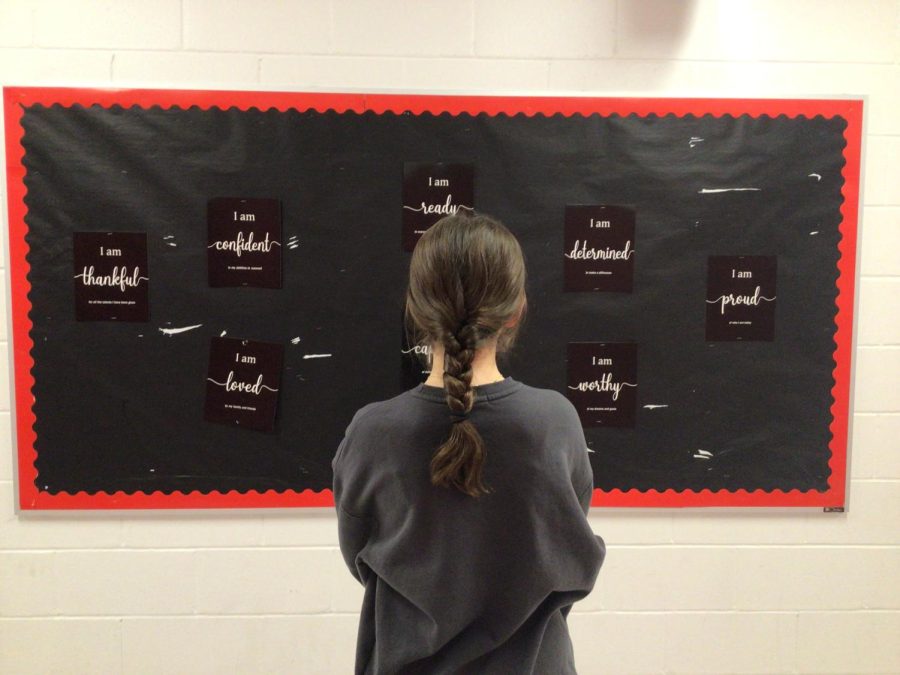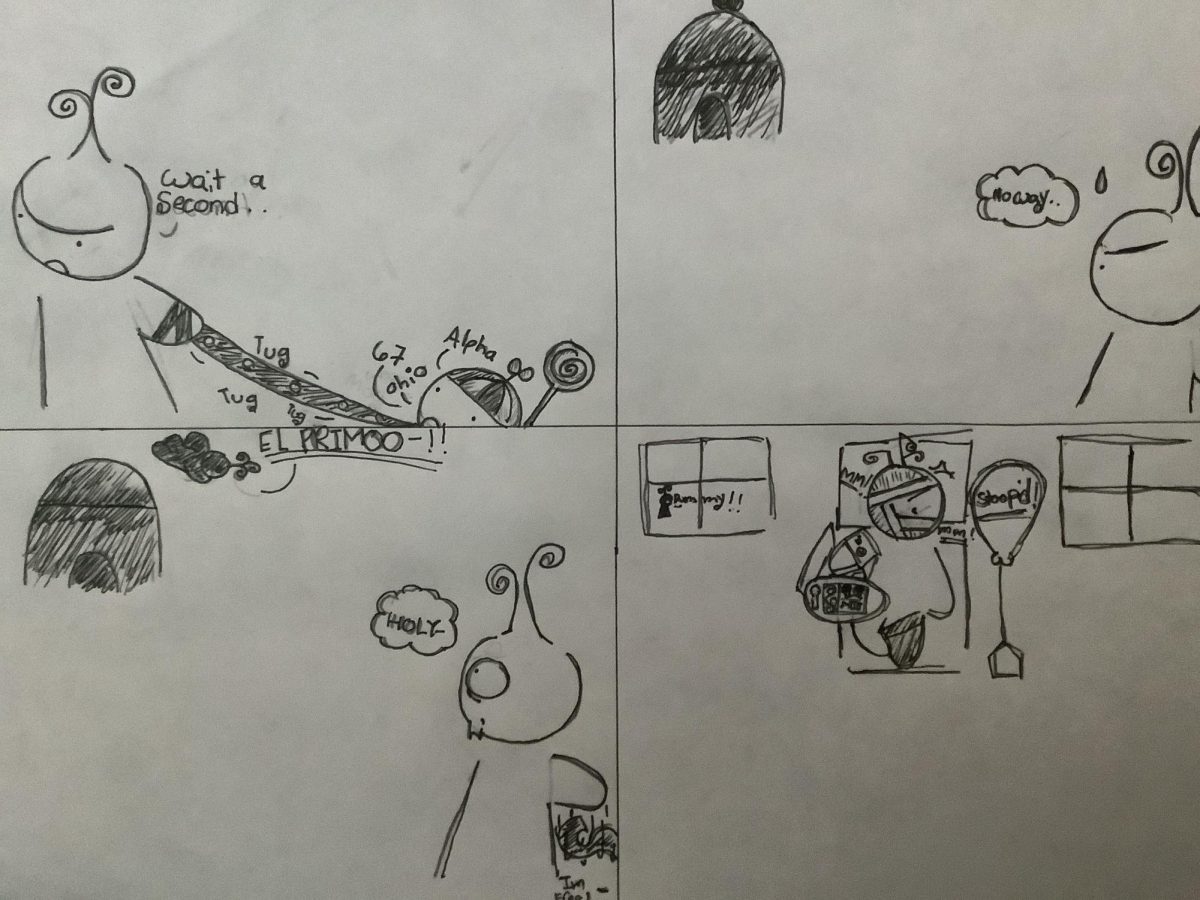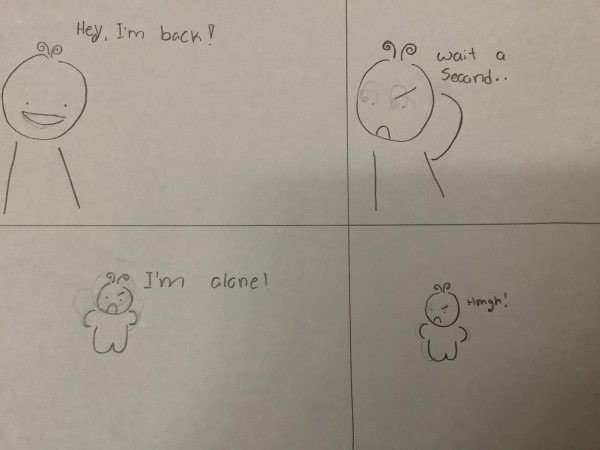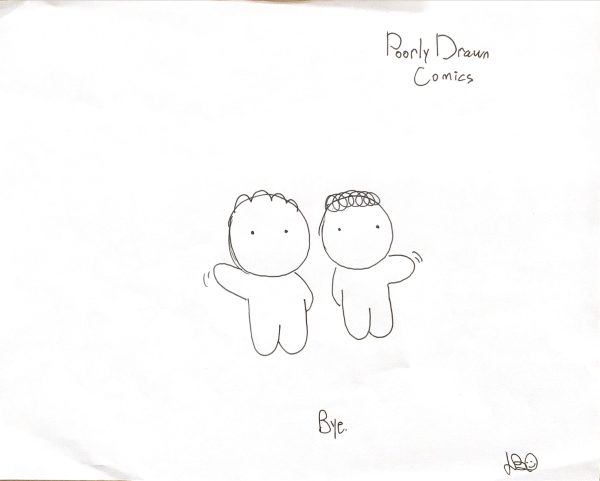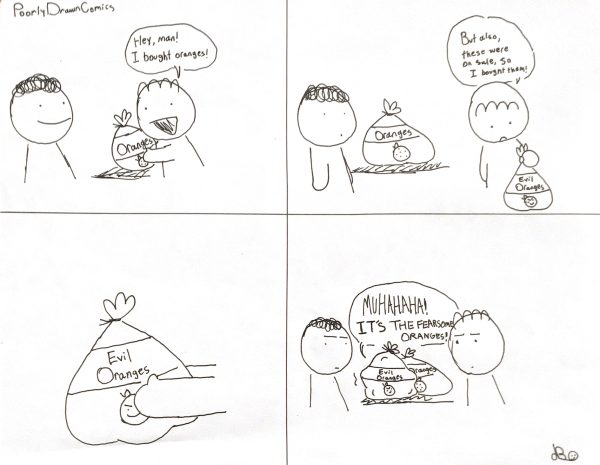Anxiety: A worthy conversation
YOU ARE WORTHY – A WMS student reads the bulletin board about self-worth at WMS.
Jan 20, 2023
Statistics show that more than 31% of U.S. people will experience an anxiety disorder at some point in their lifetimes. If you ask me, that is something crazy to wrap your head around; about 100,000,000 people in America experience anxiety, so if you think you are alone you are definitely not.
Social media has become one of the most addicting things known to humans. Mikey Reyes, an eighth grade student at WMS, stated, “Social media is what I do when I’m bored, it’s basically my life.”
Social media is not only addictive, but it has become a tool used for avoidance of problems and emotions. You wake up, and you check your phone. You are bored, and you go on your phone. You are angry, and you go on your phone. The list goes on forever.
Mr. Murphy, a seventh and eighth grade ELA teacher at WMS, said, “When I was a kid, my phone had ten buttons on it, there was no way to go on the internet. Now, everybody spends every waking moment on the internet.”
Social media can be so mind altering that people start to overthink and you start to get stressed and anxious over the smallest of things.
Middle schoolers tend to look at other people and say to themselves, “Why doesn’t my body look like that? Why doesn’t my smile shine so bright? Why am I this, and why am I that?”
Dr. Lott said, “When we are presented with these problems we don’t want to hear an, ‘Oh man, I’ve experienced that too,’ but sometimes people just want you to listen.” Not everyone wants you to sympathize with them, or give advice; most of the time people just need a shoulder to cry on, and we have to learn to be able to be somebody’s person.
Sam Malltell, cheer captain of the WMS cheer team, stated, “Everybody has their own person that they can go to for everything. Their person is someone who gets you like no other. We cling onto that person because that’s all we got; the only one who understands.” When you figure out your person, you trust them like no other but venting and talking about your problems doesn’t always necessarily fix them.
Murphy thinks that if “phones didn’t have cameras people would genuinely be happier.” I agree with this statement because anxiety doesn’t hit all of us the same; for some of us it’s a small nerve and for others it can be a whole panic attack. All that matters is how we handle it but in order to handle it properly we need to know the difference between anxiety and nerves.
Dr. Lott explained, “Nerves and anxiety are completely different. Nerves are, ‘I’m so nervous to give this speech,’ but you go out there and you kill it. Anxiety is, ‘I’m way too nervous to give this speech. I might throw up. I can’t do it.’”
With nerves we can usually put them aside and calm ourselves down easier. With anxiety, we can get sweaty palms, and a dry throat as if we can’t get a word out, our legs feel like spaghetti, and so much more, but everyone experiences it differently.
Mr. Murphy said, “Sometimes I lay in bed at night trying to sleep and then my brain decides to list the eleven things that I’m most worried about.” Some people bottle it all up until they just burst, but that is never healthy.
We have to remember that there are certain things that can calm us down. Malltell said that she loves listening to music but “a lot of teachers don’t understand that music actually helps people. Not even just for concentrating purposes, but thinking and feeling better mentally.”
Teachers also help us in every way that they can. Murphy says that the best way to help his students is by “just being able to have a conversation [with students] that’s not necessarily about school. Being able to connect with students in an aspect bigger than school [is important.]”
The most important thing to remember is that you are human too, and you don’t have to stay quiet all the time. Talk to a teacher, to a close friend, to a trusted adult, and even a counselor if you feel as if the world is closing in on you. If you need any help please call the National Suicide and Crisis Lifeline at 988. You are not alone, and help is always available.

